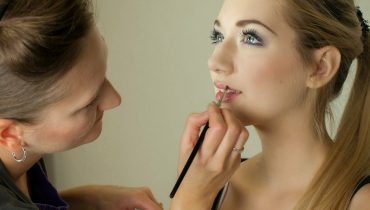Drinking a glass of wine or one bottle of beer a day will probably not cause any skin problems. In fact, it can be beneficial.
Drinking a glass of wine, especially red wine, delivers a load of antioxidants to your body, which are great for your skin.
But excessive consumption of alcohol can cause various skin problems.
By excessive, I don’t necessarily mean drinking yourself to a stupor. Drink more than two glasses of wine or two bottles of beer and you are already beyond the recommended daily maximum.
Hard spirits like whiskey are especially easy to overconsume. More than two shots a day is enough to qualify as excessive.
If you consistently drink alcohol beyond the recommended amount, here’s how it can affect your skin.
Dehydration
Alcohol is a diuretic, meaning it causes you to lose more water through urination.
Alcohol takes out more water out of the body than it adds. Even if you drink water as you take alcohol, most of that water goes straight out of the body, leaving you dehydrated.
Over time, this will affect your skin health.
Your skin will feel drier, causing it to become dull and prone to breakouts.
You may also notice your skin cracking and bleeding, which increases the risk of infection.
Skin dryness also makes aging symptoms like wrinkles and fine lines more noticeable.
Solution: The solution is not to drink more water when you take alcohol. It won’t help. The best solution is to reduce your alcohol intake to the recommended levels. If you can avoid alcohol altogether, even better.
Lack of nutrients
Excessive consumption of alcohol can affect the balance of various vitamins and minerals in the body.
This is one of the causes of alcoholic neuropathy, where certain minerals and vitamins essential to nerve functions don’t work as expected.
Some of these nutrients like vitamin E and thiamine (vitamin B1) are important for skin health.
Too much alcohol intake can deprive your skin of these vitamins, causing skin problems, rapid aging and a generally unhealthy looking skin.
Solution: Lowering alcohol consumption is obviously the best solution. As you do that, make sure you also adopt a diet rich in vitamins and minerals such as fruits, vegetables, nuts, whole grains and fish. If you have a particularly severe deficiency in a certain nutrient, consider taking supplements (talk to your doctor first).
Cellulite build-up
Have you noticed cellulite on your thighs or arms?
Alcohol might be to blame.
For one, alcohol adds empty calories to your body, adding more fat to your skin. This can cause cellulite build-up.
Alcohol also constrict blood vessels when you drink too much (moderate drinking widens blood vessels), causing poor blood circulation and worsening your cellulite problem.
Solution: Lay off alcohol or drink moderately. A healthy diet and regular exercise can lower the risk of developing cellulite and reduce the appearance of existing cellulite.
Rosacea
Drinking alcohol, even excessively, does not cause Rosacea, a skin condition characterised by redness in the face.
But it can trigger a flare up in people who are prone to the condition.
If you already have rosacea, drinking alcohol can make it worse and cause more noticeable symptoms. Red wine followed by white wine and beer are especially bad for rosacea sufferers.
If you keep drinking, it can become a permanent condition.
Solution: Most people with rosacea find that limiting consumption works great to prevent a flare up. If you are condition is easily triggered by even a single glass of wine, avoiding alcohol might be the best solution. Health experts also recommend drinking water when you take alcohol to reduce the risk of triggering rosacea.


